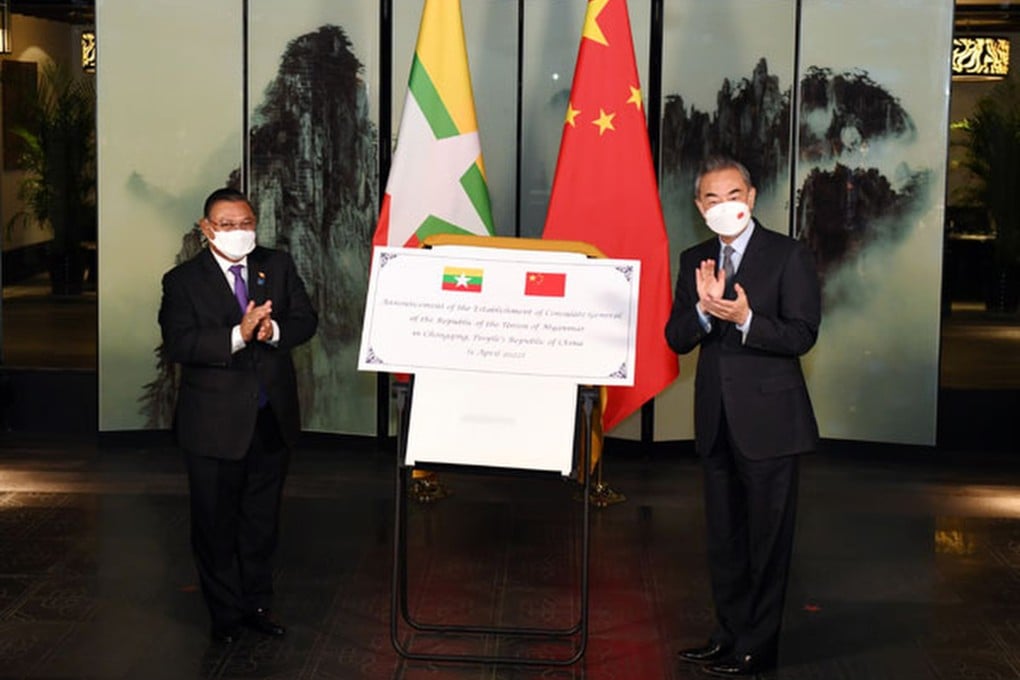Chinese firms warned over ‘vulnerable’ overseas projects after Myanmar military junta cancels tenders, blacklists
- Myanmar’s military regime is reported to have cancelled tenders relating to 26 solar power projects, the majority of which involved Chinese investment
- Firms have been blacklisted for ‘breaching tender regulations’ after 29 tenders were invited under the now-ousted National League for Democracy government in 2020

Chinese firms investing in potentially “vulnerable” overseas opportunities have been urged to proceed with caution after reports Myanmar’s military junta cancelled tenders and blacklisted companies related to over 25 solar power projects.
Beijing has maintained a relationship with Naypyidaw after last year’s coup, highlighted by Foreign Minister Wang Yi meeting counterpart U Wunna Maung Lwin in April.
But The Irrawaddy, an independent news website operated by exiles living in Thailand, reported last week that Myanmar’s military regime had cancelled tenders relating to 26 solar power projects which were invited under the now-ousted National League for Democracy government in 2020 and blacklisted the companies for “breaching tender regulations”.
The move also came after the electricity and energy minister U Aung Than Oo was ousted last week.
Pretty much all the solar projects which were granted after a tender in 2020 were cancelled due to the lack of progress of these companies
“Interestingly, Myanmar’s government said only a week earlier that it wanted to accelerate hydrocarbon and renewable energy projects in the country, as power shortages have worsened due to LNG price rises in addition to the impact of sanctions,” said Melissa Cyrill, deputy associate editor at consulting firm Dezan Shira & Associates.